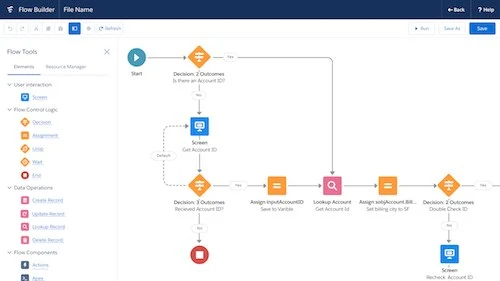In today’s data-driven business landscape, maintaining the accuracy and integrity of your Salesforce data is paramount. Salesforce Validation Rules serve as the gatekeepers of data quality, ensuring that only clean and accurate information enters your system. In this comprehensive guide, we’ll delve into the intricacies of Salesforce Validation Rules, their implementation, and best practices for error-free data management.
Understanding Salesforce Validation Rules
Salesforce Validation Rules are powerful tools that allow you to enforce specific data entry criteria and validation logic. By defining these rules, you ensure that the data entered into your Salesforce instance meets your organization’s standards. When a user attempts to save a record, the Validation Rule evaluates the data and determines whether it meets the specified criteria. If the data doesn’t satisfy the conditions, an error message is displayed, preventing the record from being saved until the issues are resolved.
Key Benefits of Salesforce Validation Rules
1. Data Accuracy and Integrity
Salesforce Validation Rules serve as your first line of defense against inaccuracies and inconsistencies in your data. By setting up rules that validate data accuracy, you reduce the risk of erroneous information entering your system.
2. Enhanced User Adoption
Clear and well-structured Validation Rules guide users in entering data correctly from the start. This enhances user experience and minimizes frustration, as users receive immediate feedback when they attempt to save data that doesn’t meet the predefined criteria.
3. Regulatory Compliance
In industries where compliance is critical, such as healthcare and finance, Validation Rules ensure that data adheres to industry regulations and standards. This helps you avoid compliance issues and potential penalties.
Implementing Effective Salesforce Validation Rules
1. Identify Validation Points
Begin by identifying the key areas where data accuracy is crucial. These might include mandatory fields, specific data formats, or numeric ranges. Create Validation Rules that align with your business requirements.
2. Construct Clear Error Messages
Craft error messages that provide meaningful guidance to users. Instead of generic messages, offer specific details about the validation criteria that weren’t met and suggestions on how to rectify the issue.
3. Utilize Custom Formula Logic
Leverage Salesforce’s powerful custom formula logic to create advanced Validation Rules. This allows you to implement complex validation scenarios tailored to your business processes.
Best Practices for Successful Validation Rules Implementation
1. Collaborate with Stakeholders
Involve relevant stakeholders, such as sales, marketing, and IT teams, to ensure that the Validation Rules align with various business functions and objectives.
2. Regular Review and Maintenance
As your business evolves, so do your data requirements. Regularly review and update your Validation Rules to stay in sync with changing business needs and industry standards.
3. Provide User Training
Empower your users with the knowledge they need to understand and comply with Validation Rules. Conduct training sessions to demonstrate the importance of accurate data entry and how it contributes to overall operational efficiency.
Visualizing the Salesforce Validation Rule Process

The diagram above illustrates the process of Salesforce Validation Rules. When a user attempts to save a record, the Validation Rule engine evaluates the data against predefined criteria. If the data passes validation, it’s saved successfully. If not, an error message is generated, preventing the record from being saved until the issues are resolved.
In the realm of data management, Salesforce Validation Rules stand as a crucial line of defense against errors and inconsistencies. By implementing these rules effectively, organizations can ensure the accuracy and integrity of their data, thereby enabling informed decision-making and streamlined processes. At [Your Company Name], we’re committed to helping you harness the power of Salesforce Validation Rules to achieve unparalleled data quality and operational excellence. Contact us today to learn more about how we can tailor Salesforce to meet your unique business needs.




